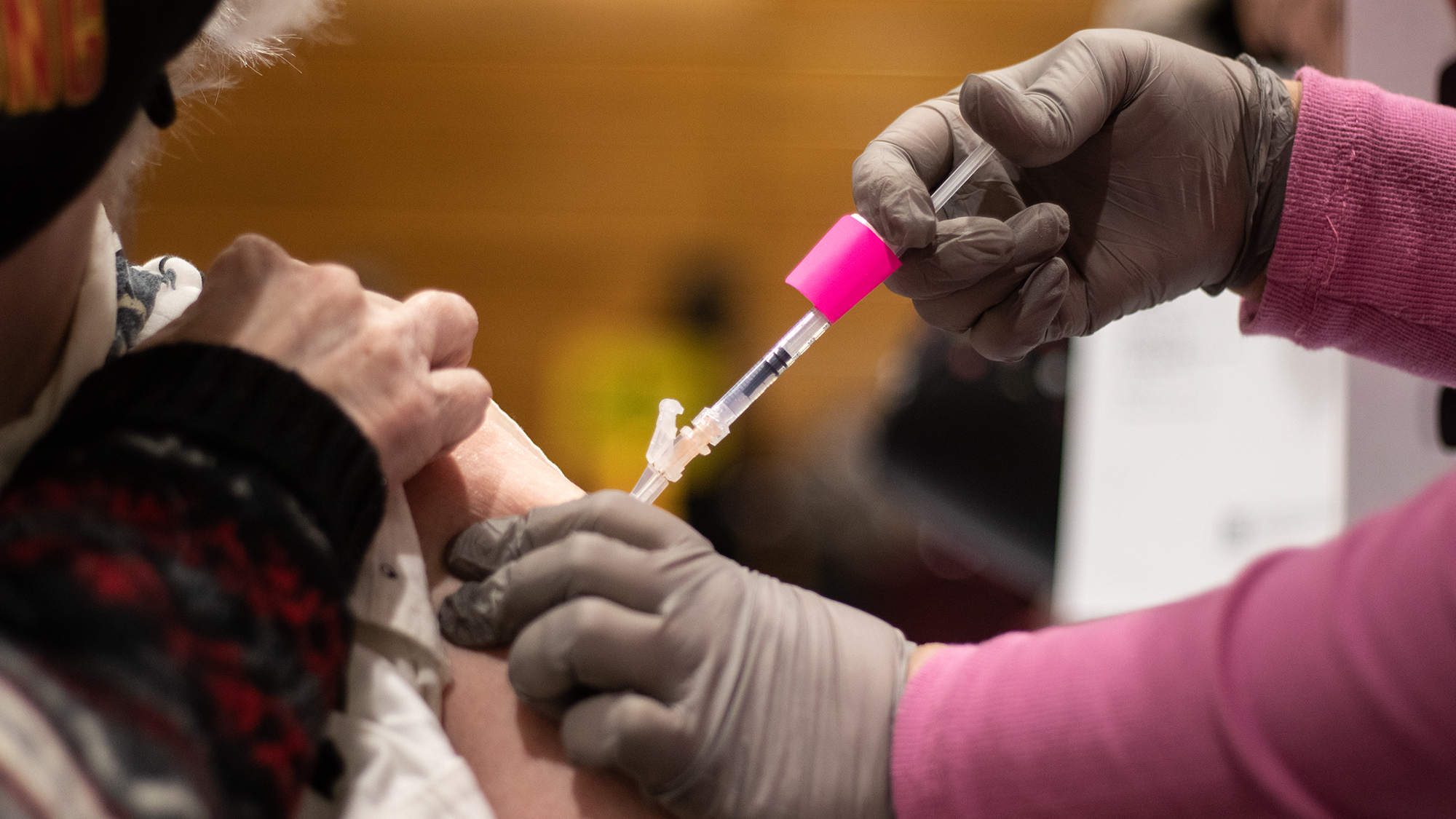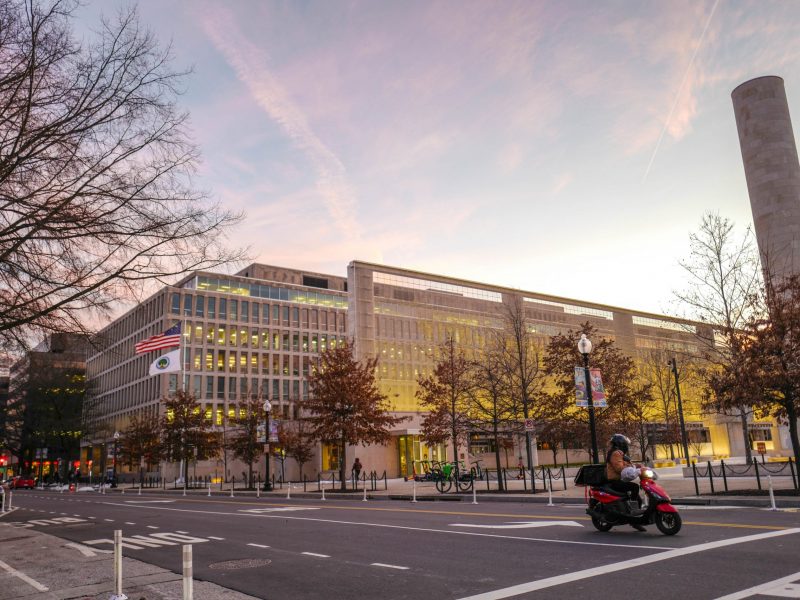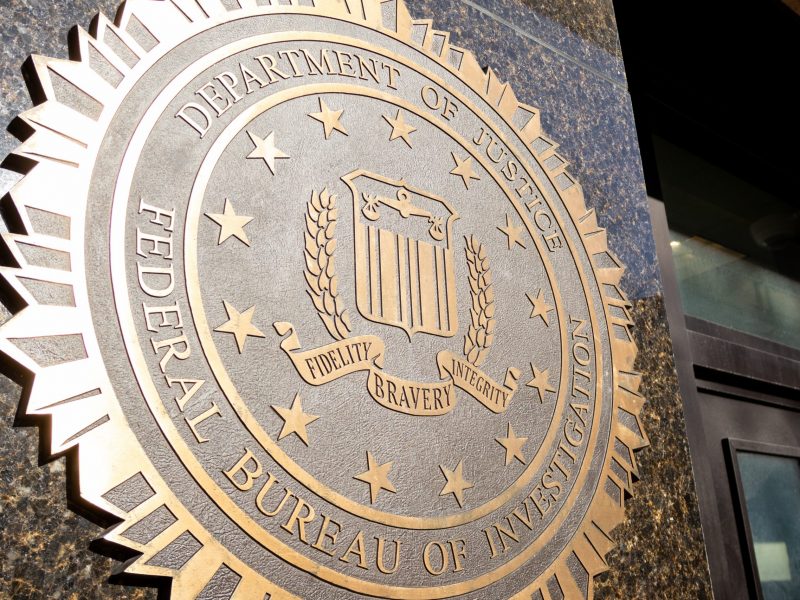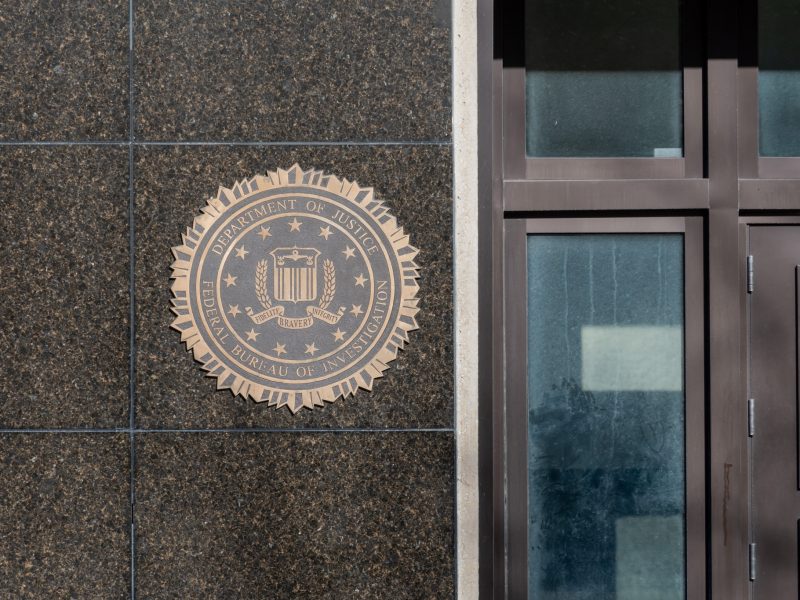By Grace Walker
For The Diamondback
Booster shots are becoming more and more common as COVID-19 rates remain high in the United States. A team of professors at the University of Maryland School of Medicine is spearheading research on mixing vaccines for booster shots.
This national trial, called the Mix and Match COVID-19 Booster Study, is being conducted at ten sites across the U.S., including the medical school, which is located in Baltimore and affiliated with the University of Maryland Medical Center and Medical System.
Dr. Kirsten E. Lyke is the national co-chair of the project and professor of medicine at the Center for Vaccine Development and Global Health at the medical school. She recently presented her findings to the Food and Drug Administration.
On Sept. 22, the FDA approved the use of a single booster shot of the Pfizer COVID-19 vaccine, but only for certain individuals. The eligible population includes people ages 65 and older, high-risk individuals ages 18-64 and individuals ages 18-64 who are put at a repeated risk of exposure through their job.
“Our question wasn’t necessarily when to boost, it was how best to boost when or if we decide to boost these vaccines,” Lyke said. “We’re not weighing in on the appropriate interval to boost people. We’re just providing answers as to whether you can mix the vaccines and how best to do so.”
Leslie Howe, the lead clinical trials recruiter at the medical school, usually contacts participants for clinical trials through pools of people who have previously done a study. Now with the COVID-19 studies, she said they’re trying to bring new people in.
“We’re really trying to bring new people into this process,” Howe said. “We sat down and strategized on how to get the word out in different communities and worked on it that way.”
UMD professors push for passage, expansion of Build Back Better Act in Congress
For this study, they worked with several churches, partnering with Rev. Debra Hickman of Baltimore to get the word out.
“We’re going to see information from the study come out in pieces. The first bits that are going to come out are: what are the antibodies early after vaccination? Is it safe, and does it boost the immune response?” said Dr. Meagan Deming, national vice chair of the project and an instructor at the Center for Vaccine Development and Global Health at the medical school.
According to Deming, each individual participant is in the study for at least a year so they have the ability to follow long-term immune responses. They anticipate to have the very first bits of results in a few weeks and to have a formal paper with the results to be published by the end of October.
UMD public health professor wins award for excellence in environmental leadership
Deming is “fresh out of fellowship,” she said. She came to the University of Maryland for two years of residency and four years of fellowship back in 2015. She finished this past June and is newly hired as an instructor at the medical school.
Joel V. Chua, an assistant professor of medicine and sub-investigator on the project, thinks this research could potentially be helpful in providing additional safety data on the vaccines to those who are apprehensive about vaccination, but it may not be able to help people who have already made up their minds.
“There is also a population that will probably never accept it, so it will be much more challenging for that population to be convinced, regardless of the study,” said Chua, who was an infectious disease fellow at the University of Maryland Medical Center from 2008 to 2010.
Down the road, Lyke thinks people may need regular boosts, potentially even annually.
But for now, the team is taking it one step at a time.
“It looks like a booster with the wild-type gives us good enough immunity to cover the circulating variants that are out there right now,” Lyke said.
The research is particularly important to guide lawmakers and individuals on COVID-19 vaccines, Deming said.
“Knowing if it’s safe and effective to mix and match your vaccines is really essential for designing policy and making policy choices,” Deming said. “I hope that if people can see the process of how this works, they will regain their trust in how we do science and how we try and answer these critical questions.”



